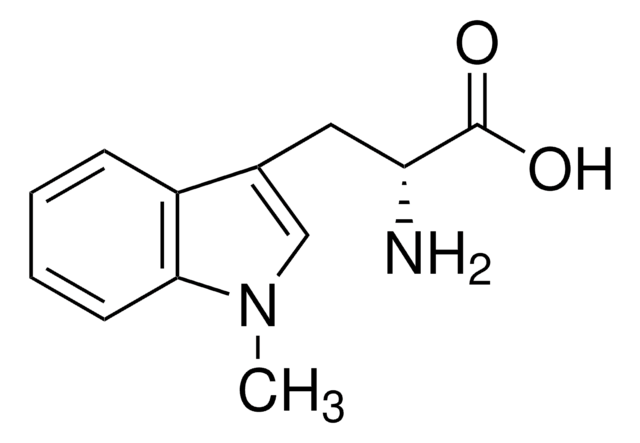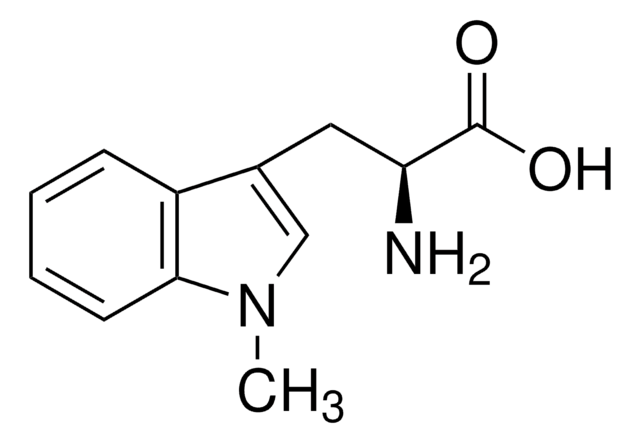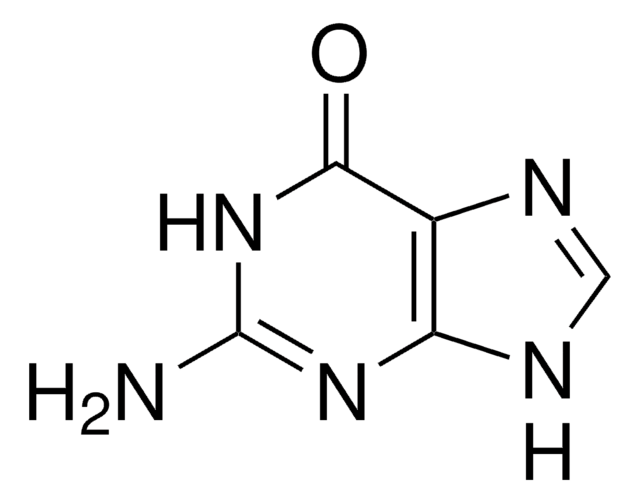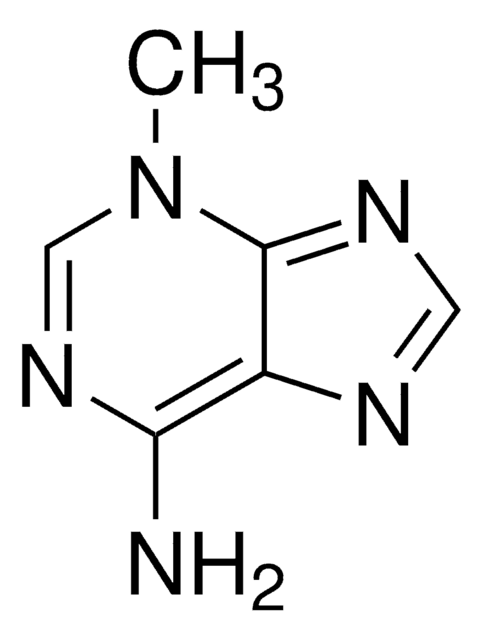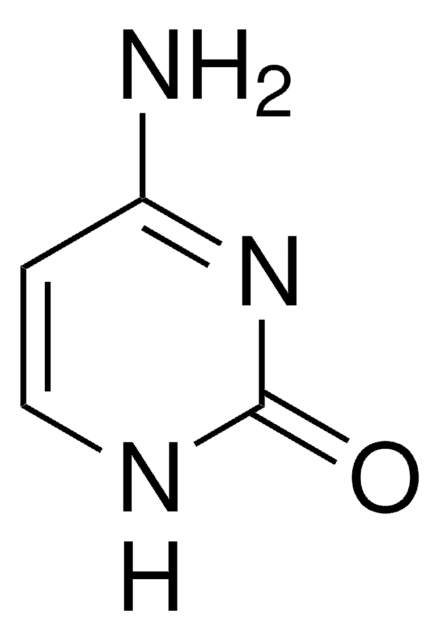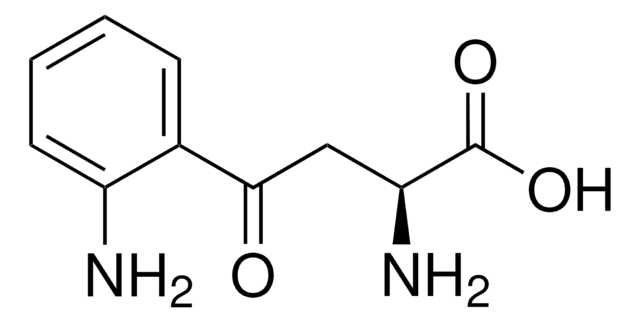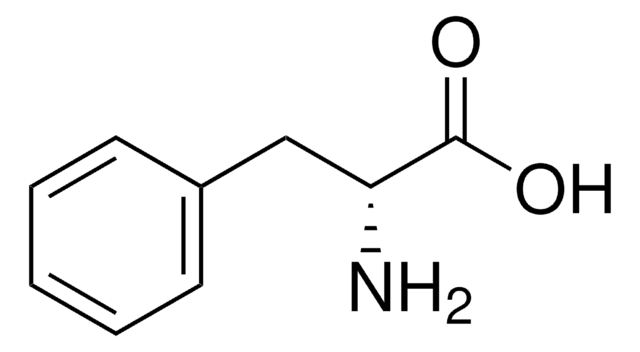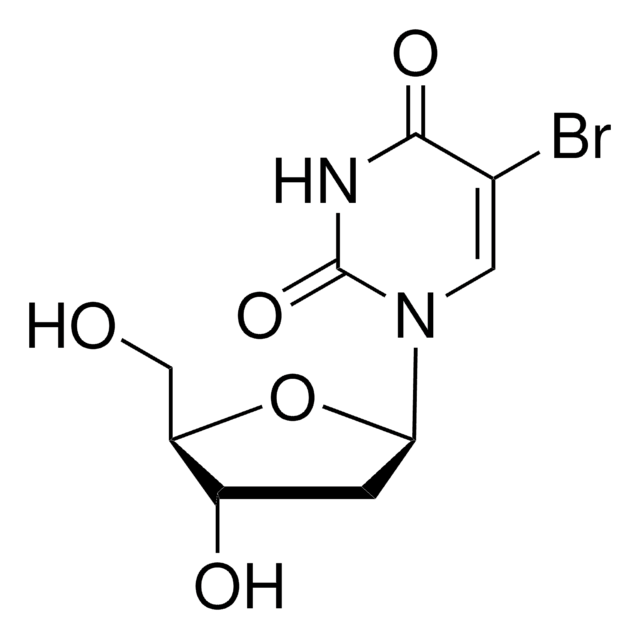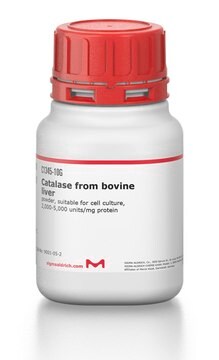860646
1-Methyl-DL-tryptophan
97%
Sinónimos:
1-Methyl-DL-tryptophan, 1-Methyltryptophan, 2-Amino-3-(1-methyl-1H-indol-3-yl)propanoic acid, 2-Amino-3-(1-methyl-1H-indol-3-yl)propanoicacid, 2-Amino-3-(1-methylindol-3-yl)propanoic acid, DL-1-Methyltryptophan, N′-Methyl-DL-tryptophan
About This Item
Productos recomendados
Quality Level
assay
97%
form
solid
mp
250 °C (dec.) (lit.)
functional group
amine
carboxylic acid
SMILES string
Cn1cc(CC(N)C(O)=O)c2ccccc12
InChI
1S/C12H14N2O2/c1-14-7-8(6-10(13)12(15)16)9-4-2-3-5-11(9)14/h2-5,7,10H,6,13H2,1H3,(H,15,16)
InChI key
ZADWXFSZEAPBJS-UHFFFAOYSA-N
Categorías relacionadas
Application
Storage Class
11 - Combustible Solids
wgk_germany
WGK 3
flash_point_f
Not applicable
flash_point_c
Not applicable
ppe
Eyeshields, Gloves, type N95 (US)
Elija entre una de las versiones más recientes:
¿Ya tiene este producto?
Encuentre la documentación para los productos que ha comprado recientemente en la Biblioteca de documentos.
Los clientes también vieron
Nuestro equipo de científicos tiene experiencia en todas las áreas de investigación: Ciencias de la vida, Ciencia de los materiales, Síntesis química, Cromatografía, Analítica y muchas otras.
Póngase en contacto con el Servicio técnico